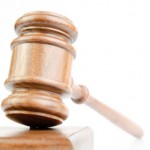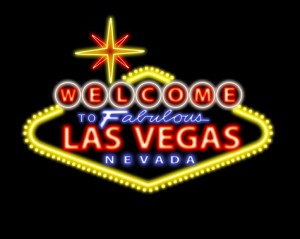 A recent ruling by the Prince William County Circuit Court declared that interviews by carriers with their insured regarding an auto accident fall within the shield provided by the “work product” doctrine of supreme Court Rule 4:1(b)(3). The Virginia Court of Appeals upheld the decision. Plaintiff’s motion to compel was denied for several reasons.
A recent ruling by the Prince William County Circuit Court declared that interviews by carriers with their insured regarding an auto accident fall within the shield provided by the “work product” doctrine of supreme Court Rule 4:1(b)(3). The Virginia Court of Appeals upheld the decision. Plaintiff’s motion to compel was denied for several reasons.
First, the court stated that the “work product” doctrine “protect[s] not only materials gathered by or for counsel in anticipation of litigation, but materials gathered by or for others, including the liability insurance carrier.” Furthermore, the court cited Veney v. Duke for the proposition that discussions of third party coverage is protected by the “work product” doctrine, and extended that logic to discussions of first party coverage. Finally, since the case at bar involved an insured who plead guilty to a traffic infraction and contested liability in a subsequent civil case, the court stated that the affirmative duty of defense counsel to prevent his client from testifying to a known falsehoods “offers sufficient protections.”
This ruling has important ramifications for Virginia subrogation attorneys, insurance defense firms and personal injury attorneys. For the Virginia subrogation attorney, this ruling confirms an intuition long held, that those conversations by insurance adjusters regarding third party coverage should be protected under Virginia’s “work product” doctrine. Insurance defense firms facing Virginia subrogation firms should expect to be stymied by this latest ruling when issuing subpoenas duces tecums in the future.
Justin McLeod
2012 NASP Conference
 The annual NASP conference is taking place in Las Vegas this year, November 11th through the 14th. To learn more about the upcoming subrogation conference click here.
The annual NASP conference is taking place in Las Vegas this year, November 11th through the 14th. To learn more about the upcoming subrogation conference click here.
Don’ miss out, check out the NASP website for information on booking and sponsorship.
"Sea Change" in Virginia Evidence
The new rules of evidence went into effect throughout Virginia on July 1st, and as one legal expert stated, it represents a “sea change” within the legal community. Virginia has relied upon a mixture of case law and common law to govern rules of evidence, but now there are rules. The biggest difference is that rules represent black and white mandates, whereas case law has gray areas allowing judges and lawyer room to argue and mold them to suit their purposes.
In a Fairfax Bar Association Seminar the following rules were selected as having the greatest impact:
- The contemporaneous objection requirement of Rule 2:103. The objection must be made with “reasonable certainty,” under the law.
- Character evidence allowed under Rules 2:404-405.
- Offers to compromise (Rule 2:408) this rule allows into evidence an admission as to liability or an admission concerning an independent fact pertinent to a question in issue. Attorneys often speak or write to each other in confidence and this rule could place these type of candid, often constructive, conversations on ice permanently.
- Evidence of repeated abuse of the defendant by the victim, Rule 2:409. The new rule allows evidence of psychological abuse, which some judges may have prohibited.
- Impeachment of witnesses, combination of Rules 2:607-609).
In short, the offers in compromise change alone warrants close examination by personal injury attorneys and underscores the importance of all attorneys at least perusing the Rules for any changes that could affect their practice.
TX Shines Light for VA on Equitable Subrogation Principles
 The Texas Supreme Court overturned the Austin Court of Appeals in Texas Health Ins. Risk Pool v. Sigmundik, 315 S.W.3d 12, 14 (Tex.2010) that ruled the “made whole” doctrine was inapplicable in a subrogation action where a contract clearly lays out a right to subrogation. This reversal is in line with a previous case, Fortis Benefits v. Cantu, 234 S.W.3d 642 (Tex.2007), standing for the same proposition.
The Texas Supreme Court overturned the Austin Court of Appeals in Texas Health Ins. Risk Pool v. Sigmundik, 315 S.W.3d 12, 14 (Tex.2010) that ruled the “made whole” doctrine was inapplicable in a subrogation action where a contract clearly lays out a right to subrogation. This reversal is in line with a previous case, Fortis Benefits v. Cantu, 234 S.W.3d 642 (Tex.2007), standing for the same proposition.
Despite this clear line of case law, the Austin Court of Appeals erred on the side of the “little guy” in the situation where a trial court attempted to allocate the entirety of an $800,000.00 settlement in a negligence suit to the family of an individual who was injured in an oilfield explosion and spent 52 days in the hospital before eventually succumbing to his extensive injuries. When the insurance company intervened in the action and asserted a $330,000 lien on any recovery obtained by the family the trial court ruled that where subrogation claims work an injustice they should not be allowed. The court cited the financial hardship of the family and the solid financial position of the insurance company. The Austin Court of Appeals concurred with the trial court’s reasoning and affirmed. Ultimately, the Supreme Court overturned the ruling and cited its own cases to the contrary.
These cases are instructive for the Virginia subrogation counsel facing sympathetic trial judges who may be tempted to ignore the plain subrogation language in an insurance contract to “balance the equities.” As the Texas Supreme Court affirms, contracts are still held to be almost sacrosanct, no matter the outcome. This applies for subrogation, just like any other form of contractual agreement.
Contractual vs. Equitable Subrogation in Virginia
 Equitable Subrogation in Virginia
Equitable Subrogation in Virginia
Subrogation is the legal process in which an insurer can step into the shoes of their policyholder to recover damages from the third party responsible for the loss. Equitable subrogation is based on equity, or fairness, as defined by the Virginia Supreme Court in Xl Specialty Ins. Co. v. Dept. of Transp., 611 S.E.2d 356, 269 Va. 362 (Va, 2005):
Equitable subrogation is subrogation that arises by operation of law. It is not based on contract or privity of parties, but is “purely equitable in nature, dependent on the facts and circumstances of each particular case.” Centreville Car Care, Inc. v. North Am. Mortgage, 263 Va. 339, 345, 559 S.E.2d 870, 872 (2002) (quoting Federal Land Bank of Baltimore v. Joynes,179 Va. 394, 402, 18 S.E.2d 917, 920 (1942)). When a principal defaults on a contract guaranteed by a performance or payment bond and the surety performs on the bond, principles of surety law and the doctrine of equitable subrogation impose certain rights and duties running between the surety, principal, and obligor, and allow the surety to enforce such rights and duties. See Dickenson v. Charles, 173 Va. 393, 400, 4 S.E.2d 351, 353 (1939) (quoting Kendrick v. Forney, 63 Va. (22 Gratt.) 748, 749-50 (1872)); Fulkerson v. Taylor, 100 Va. 426, 432,41 S.E. 863, 865 (1902); Restatement (Third) of Suretyship and Guaranty § 27 (1996).
Equitable subrogation arises from the common law and can work against the insurer conducting business in Virginia. For instance, where the Virginia policyholder has uninsured losses and recovers a judgment against the tortfeasor that does not equal the amount of total loss suffered by the insured, then the insurer cannot recover against the third party.
Contractual Subrogation in Virginia
The key difference in Virginia between equitable subrogation and contractual subrogation is that judges ultimately decide the outcome of an equitable subrogation action, while the language and intent of the parties control the outcome in a contractual subrogation case. It is imperative for the parties to a subrogation case to understand the language of the insurance contract and how it affects subrogation rights. For instance, insurance contracts can be written to give the insurer first right of subrogation, which cuts off most equitable subrogation worries. Virginia subrogation attorneys would be wise to discuss contract provisions with clients operating in Virginia.
Editor:
Justin McLeod, Esq.
Associate
Chaplin & Gonet
Medical Bills for Personal Injury in Virginia
 Every Virginia subrogation attorney knows how important medical bills, and their introduction into evidence, are for their day-to-day practice. Often times in automobile subrogation the medical bills far exceed any damages to the car. This article confronts the confusing evidentiary “Venn diagram” of Virginia law concerning medical bills and their admission into evidence. Virginia subrogation attorneys need to understand how the differing statutes and case law overlap and be prepared for objections from opposing counsel. Each source of law will be examined in turn and then the article will conclude with a brief discussion of their overlap, interaction and trial strategies for the Virginia subrogation attorney bringing a personal injury action.
Every Virginia subrogation attorney knows how important medical bills, and their introduction into evidence, are for their day-to-day practice. Often times in automobile subrogation the medical bills far exceed any damages to the car. This article confronts the confusing evidentiary “Venn diagram” of Virginia law concerning medical bills and their admission into evidence. Virginia subrogation attorneys need to understand how the differing statutes and case law overlap and be prepared for objections from opposing counsel. Each source of law will be examined in turn and then the article will conclude with a brief discussion of their overlap, interaction and trial strategies for the Virginia subrogation attorney bringing a personal injury action.
The Law
The first relevant statute is VA Code § 8.01-413.01 titled “Authenticity and reasonableness of medical bills; presumption.” The statute states:
A. In any action for personal injuries, wrongful death, or for medical expense benefits payable under a motor vehicle insurance policy issued pursuant to § 38.2-124 or § 38.2-2201, the authenticity of bills for medical services provided and the reasonableness of the charges of the health care provider shall be rebuttably presumed upon identification by the plaintiff of the original bill or a duly authenticated copy and the plaintiff’s testimony (i) identifying the health care provider, (ii) explaining the circumstances surrounding his receipt of the bill, (iii) describing the services rendered and (iv) stating that the services were rendered in connection with treatment for the injuries received in the event giving rise to the action. The presumption herein shall not apply unless the opposing party or his attorney has been furnished such medical records at least twenty-one days prior to the trial.
This code section closely mirrors the language in McMunn v. Tatum, 237 Va 558, 379 S.E.2d 908 (Va. 1989) (hereinafter McMunn v. Tatum), which allows parties to introduce medical bills into evidence by laying a foundation through a lay witness. On its face, this statute allows attorneys to get in records without dealing with reasonableness or authenticity objections as long as copies of the records are sent to opposing counsel 21 days before trial. For most cases, if the Virginia subrogation attorney gets the records to opposing counsel within the 21 days, then there are usually no issues at trial. However, with a careful reading of Mcmunn v. Tatum, opposing counsel can trip up a Virginia subrogation attorney with an authenticity objection. A brief look at the holding in McMunn v. Tatum will prove instructive before discussing its impact upon VA Code § 8.01-413.o1.
McMunn v. Tatum was an appeal from a malpractice suit brought against a dentist. The case examined two evidentiary issues: (1) whether a plaintiff’s testimony that he has received bills regular on their face and consistent with his testimony as to his injuries and treatment is sufficient to show that the bills “came from the sources claimed” and (2) that the introduction of bills of the kind described above is “some evidence” that they are reasonable in amount. The Supreme Court of Virginia held the following:
A plaintiff may offer medical bills through the plaintiff’s testimony alone if he lays a foundation showing (1) that the bills are regular on their face, and (2) that they appear to relate to treatment, the nature and details of which the plaintiff has explained. If the defendant challenges the authenticity of the bills, they will be insufficient in themselves to create a jury issue, and independent proof of authenticity will be necessary. If the defendant challenges only their quantitative reasonableness, a jury issue is created on that question. The jury may then consider the bills as “some evidence” of their quantitative reasonableness, to be weighed against such evidence as the defendant may present on that question. If the defendant contests their medical necessity or causal relationship and further represents to the court that the defense will offer evidence on those issues, the bills will be insufficient in themselves to create a jury issue, and expert foundation testimony will be prerequisite to their admission.
The majority opinion contains an important footnote tempering the above requirements: “The issues of medical necessity and causal relationship are substantially uncontested where a defendant who intends to offer no evidence on those issues merely objects to the medical bills for the purpose of “putting the plaintiff to his burden of proof.” This important footnote is an invaluable arrow in the Virginia subrogation attorney’s quiver. In Virginia General District Court cases, where neither party wants to spend money on expert witnesses, McMunn v. Tatum stands for the proposition that plaintiffs may introduce medical bills into evidence by testimony without much worry as to reasonableness nor medical necessity objections.
One could be forgiven for looking at both VA Code § 8.01-413.01 and McMunn v. Tatum and concluding between case law and the above-mentioned statutes Virginia subrogation attorneys have the process of introducing medical bills into evidence pretty much covered. However, there is another key statute dealing directly with the introduction of medical bills in General District Court (courts not of record) or Circuit Court, where the defendant appeals: VA Code § 16.1-88.2, titled “Evidence of medical reports or records; testimony of health care provider or custodian of records.” This code section predates the Supreme Court handing down McMunn v. Tatum, in fact, the Supreme Court cites VA Code § 16.1-88.2 in its majority opinion.
The relevant section of VA Code § 16.1-88.2 states:
In a civil suit tried in a general district court or appealed to the circuit court by any defendant to recover damages for personal injuries or to resolve any dispute with an insurance company or health care provider, either party may present evidence as to the extent, nature and treatment of the injury, the examination of the person so injured and the costs of such treatment and examination by a report from the treating or examining health care provider as defined in § 8.01-581.1 and the records of a hospital or similar medical facility at which the treatment or examination was performed. Such medical report shall be admitted if the party intending to present evidence by the use of a report gives the opposing party or parties a copy of the report and written notice of such intention 10 days in advance of trial and if attached to such report is a sworn statement of the treating or examining health care provider that: (i) the person named therein was treated or examined by such health care provider; (ii) the information contained in the report is true and accurate and fully descriptive as to the nature and extent of the injury; and (iii) that any statement of costs contained in the report is true and accurate. Such hospital or other medical facility record shall be admitted if attached to it is a sworn statement of the custodian thereof that the same is a true and accurate copy of the record of such hospital or other medical facility.
A careful read of VA Code § 16.1-88.2 reveals language that echoes both the verbiage in McMunn v. Tatum and VA Code § 8.01-413.01, but with one key difference: the foundation is laid by the treating health care provider(s) by sworn affidavit. By obtaining an affidavit from the treating health care provider(s) and sending a copy of the records and affidavit to opposing counsel 10 days before trial Virginia subrogation attorneys seem to be guaranteed their admission into evidence. Authenticity concerns are dealt with by requiring a sworn statement by the custodian that the bill(s) are a true and accurate copy.
What does it all mean?
If in General District Court the Virginia subrogation attorney would be best suited to follow the requirements of VA Code § 16.1-88.2. However, given the difficulty in obtaining timely responses from medical providers it may not be an option. Then, one can look to VA Code § 8.01-413.01 and McMunn v. Tatum to almost guarantee the admission of the required medical records. However, there is still one problem area facing both General District Court and Circuit Court plaintiffs traveling the path of VA Code § 8.01-413.01: authenticity. A defense attorney can raise an objection to authenticity, given the medical records are almost always copies, and possibly keep the records out. This last hurdle can be overcome by the diligent Virginia subrogation attorney who satisfies the requirements set out in VA Code § 8.01-413(A), which states the following:
A. In any case where the hospital, nursing facility, physician’s, or other health care provider’s original records or papers of any patient in a hospital or institution for the treatment of physical or mental illness are admissible or would be admissible as evidence, any typewritten copy, photograph, photostatted copy, or microphotograph or printout or other hard copy generated from computerized or other electronic storage, microfilm, or other photographic, mechanical, electronic or chemical storage process thereof shall be admissible as evidence in any court of this Commonwealth in like manner as the original, if the printout or hard copy or microphotograph or photograph is properly authenticated by the employees having authority to release or produce the original records.
In short, if the Virginia subrogation attorney can produce an affidavit from the custodian of records at the institution where the plaintiff received medical care that the copies are authentic, then they are admissible. The Virginia subrogation attorney can keep this all straight by remembering that whenever the absolute right to admissibility granted by VA Code § 16.1-88.2 is unavailable they should look to the protections offered by VA Code § 8.01-413.01 and McMunn v. Tatum for both reasonableness and necessity and VA Code § 8.01-413(A) to sew up authenticity issues. Medical bills rest upon a three legged stool in Virginia, the legs are: reasonableness, necessity and authenticity; if any one leg is missing your whole Virginia subrogation case may fall down.
Editor:
Justin McLeod, Esq.
Associate
Chaplin & Gonet
Frozen Pipe Litigation – A Virginia Perspective
This subrogation post is a continuation of a running theme of plumbing-related subrogation challenges. I hope to address some issues elucidated in the article written by Lesa Key relating to frozen pipe litigation, but with a Virginia focus.
Where and when do frozen pipes occur?
Frozen water pipes usually occur outside of a residential or commercial building. In Virginia, you would more likely see this problem in the Northern Virginia regions, like Loudon county and along the Blue Ridge Mountains of the Shenandoah Valley. However, even ares like Richmond, normally a more temperate clime, can experience frozen pipes due to insufficient insulation, which will be touched upon later. Frozen pipes even occur underground. This is rare. Obviously, frozen pipes occur during the winter months, but pipes are especially vulnerable during a cold snap.
What to look for when pursuing Virginia frozen pipe subrogation claims
There are several steps the Virginia subrogation attorney can take to ensure a methodical, thorough investigation and pursuit of a frozen pipe case. First, examine the applicable law pertaining to construction and plumbing. In Virginia there is a statute of repose that limits the pursuit of a subrogation claim against a plumber or construction company to five years after the repair/construction:
§ 8.01-250. Limitation on certain actions for damages arising out of defective or unsafe condition of improvements to real property.
No action to recover for any injury to property, real or personal, or for bodily injury or wrongful death, arising out of the defective and unsafe condition of an improvement to real property, nor any action for contribution or indemnity for damages sustained as a result of such injury, shall be brought against any person performing or furnishing the design, planning, surveying, supervision of construction, or construction of such improvement to real property more than five years after the performance or furnishing of such services and construction. Virginia Code section 8.01-250 states the following:
The limitation prescribed in this section shall not apply to the manufacturer or supplier of any equipment or machinery or other articles installed in a structure upon real property, nor to any person in actual possession and in control of the improvement as owner, tenant or otherwise at the time the defective or unsafe condition of such improvement constitutes the proximate cause of the injury or damage for which the action is brought; rather each such action shall be brought within the time next after such injury occurs as provided in §§ 8.01-243 and 8.01-246.
Check your town, city or county ordinances regarding plumbing and building codes to ensure that any repairs made complied with applicable regulations. Virginia’s statute of repose is fairly short compared to other states that impose them. This requires prompt investigation and determination of the date of repair or construction.
If the subrogation attorney’s investigation reveals that the repair or installation did occur within the last five years then the investigation may proceed. The Virginia subrogation attorney may decide to call the plumber to testify, or call an engineer or metallurgist to testify as an expert. As a practice note, the Virginia subrogation attorney would be wise to give prompt notice to the installer, to give them an opportunity to conduct a pre-repair inspection.
Plenty of photographs of the scene should be taken along with preserving any portions of the pipe that are removed for repair. The pipe segment is crucial evidence for litigation purposes. Lastly, if a negligent repair is suspected, attempt to retrieve any invoices or receipts, and these are unavailable, seek the business records of the repair company.
Conclusion
Virginia subrogation attorneys face less frozen pipe cases than other jurisdictions, but that does not mean that our Commonwealth’s attorneys should be any less prepared to pursue a frozen pipe case.
